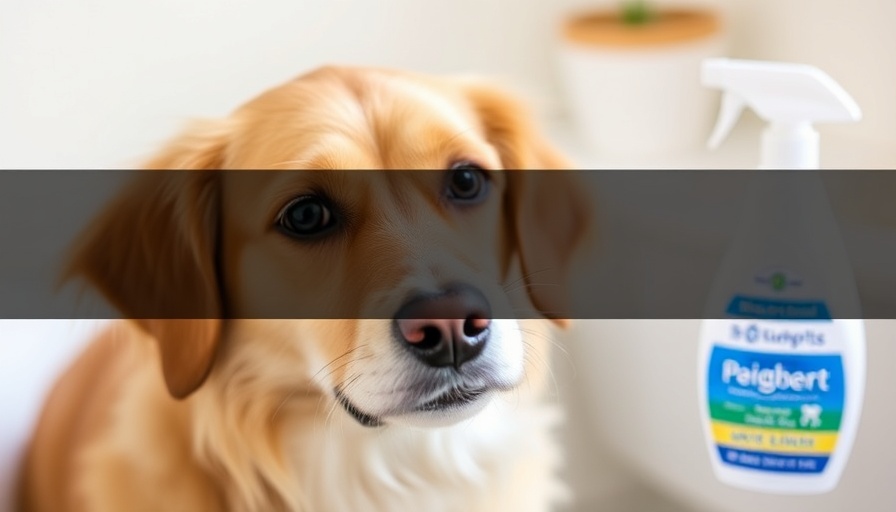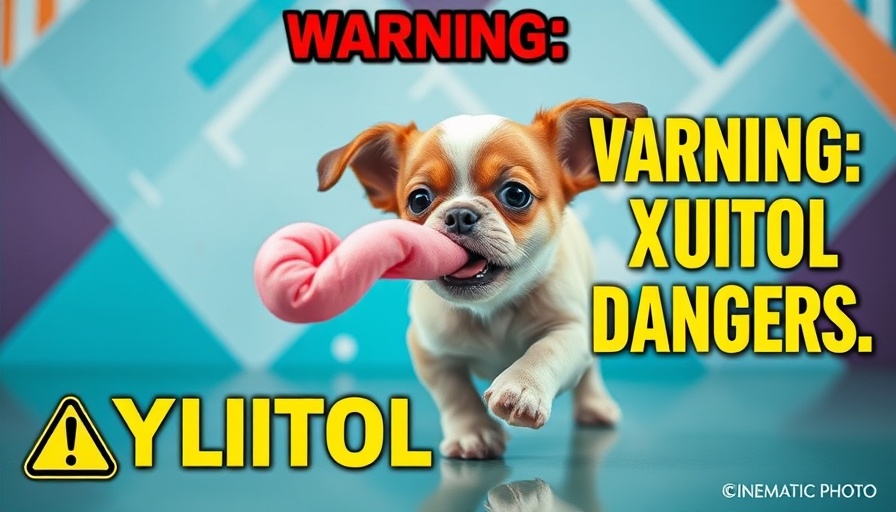
Understanding Medicated Dog Shampoos: The Basics
As responsible pet owners, ensuring our furry friends' well-being is a priority. When it comes to keeping our dogs clean, fresh, and free of irritations, the plethora of medicated dog shampoos available can present a challenge. While many of us may reach for a product labeled as medicated during moments of concern about skin issues or odors, it's vital to discern between what requires a prescription and what can safely be purchased over the counter.
The Confusing Landscape of Dog Shampoos
The primary distinction between over-the-counter (OTC) and prescription medicated dog shampoos lies in the concentration of active ingredients. OTC shampoos often include milder formulas with common ingredients such as chlorhexidine and miconazole, aimed at general skin ailments. However, these products can lead to misuse—pet parents might use them for conditions their dogs don't even have, which in turn can exacerbate underlying issues.
When is a Prescription Medicated Dog Shampoo Necessary?
Prescription shampoos are typically reserved for more serious conditions. For instance, if your dog is diagnosed with a confirmed fungal infection like ringworm or a serious bacterial skin infection, stronger ingredients in prescribed shampoos become crucial in fostering healing. These medicated solutions often contain higher concentrations of active ingredients and are meant for specific ailments that require tailored treatment.
Risks of Overusing Medicated Shampoos
It's easy to think that a medicated shampoo is a one-size-fits-all solution when in reality, using such products without need can harm your pet. Overuse of medicated shampoos can dry out a dog’s skin, stripping it of necessary oils and weakening its protective barrier. Furthermore, this can create a cycle where the dog becomes more prone to future infections due to a compromised skin barrier, effectively masking underlying problems instead of addressing them.
Non-Pharmaceutical Alternatives
In many cases, non-prescription options, such as regular bathing with gentle shampoo or utilizing a hydrating conditioner designed specifically for dogs, can help maintain skin health. Additionally, natural remedies or diet modifications may assist in alleviating minor skin irritations without resorting to stronger medicated solutions.
Consult with Your Veterinarian
Ultimately, the best course of action in addressing your dog's skin concerns is to consult with a veterinarian. They can provide tailored advice based on your dog's specific situation. Clear communication about symptoms and observations will help your vet prescribe the most effective treatments—be it an OTC shampoo or a stronger prescription product.
The Bottom Line
While medicated dog shampoos can serve an important purpose, understanding when and how to use these products can make all the difference in your dog’s health. The tides of information and trends in dog grooming may seem overwhelming, but what truly matters is ensuring your dog's comfort and happiness. Always evaluate the need for medication and lean on professional advice to safeguard against unnecessary treatments.
As loving pet parents, we're all striving to do the best for our dogs. Partnering with a trusted veterinarian and keeping mindfulness about the products we use will lead to a happier, healthier life for our furry companions.
**You can take proactive steps to educate yourself further on this topic by attending local pet wellness workshops or connecting with fellow pet owners in your community. Together, we can learn and share the best practices for our beloved companions.**
 Add Row
Add Row  Add
Add 




Write A Comment